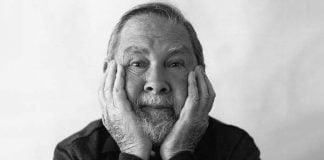Almost anyone who has been serious about left-wing politics of any kind in Australia has a story about Bob Gould, whether it be trawling the shelves of one of his bookstores or hearing one of his infamous (and lengthy) contributions to public meetings.
I first met Bob when I went to interview for a job at his shop in 2004.
Bob was always keen to meet young socialists, and especially keen to encourage their political education. Bob was a great believer in the importance of history and theory to the struggle.
Over the four or so years I spent at the shop, I not only consumed Marxist classics and the history of the Australian labour movement, but also heard many of Bob’s stories of his experiences in the struggle.
He was in his element having an eager comrade willing to listen to his stories—many of which intersected with the history of the Australian left.
Bob joined the ALP in 1954. He is probably most famous for his role as a radical activist during the campaign against the Vietnam War. He played an instrumental role in the Sydney committees against the war and his tales of running battles with conservatives—and the police—illustrated the importance of politics in building a strong movement.
In the later part of his life, Bob was involved in Labor for Refugees, challenging the conservative leadership of the Labor Party under Beazley, Rudd and Gillard.
He was a regular figure at campaign events against the NSW Labor government’s attempts to privatise electricity.
One of my favourite memories of Bob is from the APEC summit in 2007. Bob and I had many tactical disagreements about how to approach the question of over-policing. I co-chaired a meeting of around 600 people charged with making a decision about the tactics of the march. Having argued with Bob all day at work, there was no way I was going to call him to speak against my side of the argument.
Never one to take being left off the speaking list lightly, Bob made sure he got to speak. Much to my surprise, he had changed his mind and spoke in favour of a sit-in that he had been denouncing all day.
The next day at work, Bob told me it was a sign of political maturity that I tried to keep the opposition off the speaking list—but he also said it was not a very smart thing to do to my boss!
Bob was a leading figure on the left for over fifty years. In my opinion, Bob’s greatest contribution to the left was his emphasis on history and theory and his willingness to provide this education to new comrades. This went hand in hand with his efforts to forge unity in struggle amongst the left—particularly Marxists, the Greens and the left of the ALP.
Bob is best remembered by continuing the fight that he devoted his life to. As Bob always said, this means understanding the past, as well as fighting for a different future.
By Ernest Price





